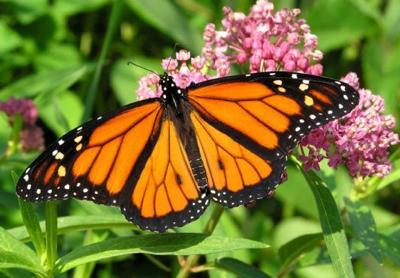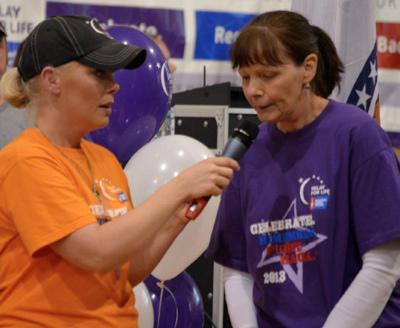
Dee Loflin, SMT Manager/Editor
Missouri - Warm weather means enjoying the beautiful outdoors, and motorcyclists across the state are doing just that. As they're tuning those engines and polishing that chrome one last time, the Missouri Coalition for Roadway Safety wants to remind motorists and motorcyclists alike to "Watch for Motorcycles" in order to help prevent motorcycle crashes, deaths and injuries on Missouri's roadways.
"Many motorcyclists will be out as the weather gets warmer, which is why May is the perfect time for Motorcycle Safety Awareness Month," said Dr. Leanna Depue, executive committee chair of the coalition. "By following basic safety rules, we can all help prevent crashes."
The National Highway Traffic Safety Administration offers the following tips to drivers on how to prevent a fatal crash with a motorcycle:
• Although a motorcycle is a small vehicle, the operator still has the same rights of the road as any other motorist. Allow the motorcycle the full width of a lane at all times.
• Always signal when changing lanes or merging with traffic.
• Check all mirrors and blind spots for motorcycles before changing lanes or merging with traffic, especially at intersections.
• Never drive distracted or impaired.
Motorcyclists must also take precautions to remain safe on the road. Motorcyclists can increase their safety by following these steps:
• Wear a DOT-compliant helmet and other protective gear.
• Obey all traffic laws and be properly licensed and trained.
• Wear brightly colored clothes and reflective tape to increase visibility.
• Ride in the middle of the lane where you will be more visible to drivers.
• Never ride distracted or impaired.
Very often, drivers of cars and trucks don't see motorcycles until the last second, or sometimes not at all. Motorcycle operators have to anticipate the moves of other drivers and be extra cautious of road conditions and debris.
Motorcycle experts recommend motorcyclists also complete some type of training before getting out on the road. There are 29 training locations in Missouri. You can find the one nearest you at http://www.mmsp.org/.
For more information, visit http://www.savemolives.com/ or Facebook and Twitter at Save MO Lives. Arrive Alive.

Dee Loflin, SMT Manager/Editor
This section of roadway is located from Route 25 to County Road 237.
Weather permitting, work will take place Tuesday, April 29 through Thursday, May 8 from 6 a.m. to 5 p.m. daily.
The work zone will be marked with signs. Motorists are urged to use extreme caution while traveling near the area.
For additional information, contact MoDOT's Customer Service Center toll-free at 1-888-ASK-MODOT (1-888-275-6636) or visit www.modot.org/southeast.

Submitted by
Dee Loflin, SMT Manager/Editor
Jefferson City, Missouri - Sunday and this morning’s severe weather across much of Missouri reminds all of us about the importance of being ready to respond quickly to threatening weather and potential natural disasters, The State Emergency Management Agency encourages Missourians to take time on Wednesday, April 30, to raise their level of preparedness for severe weather and a major earthquake as part of “America’s PrepareAthon!,” a national campaign which designates April 30, 2014 as the first National Day of Action. The event is being organized by theFederal Emergency Management Agency (FEMA).
America’s PrepareAthon! provides preparedness guides and resources to help workplaces, schools, houses of worship, community-based organizations, and other community groups to practice specific preparedness activities necessary to stay safe before, during, and after an emergency or disaster. The idea is that when Americans prepare and practice for an emergency in advance, it makes a real difference in their ability to take immediate and informed action, which, in turn, enables them to recover more quickly.
Web pages have been created for Missouri and other states, with information on specific hazards, including understanding risks, how to prepare and protect your home and property in advance, how to create an emergency kit, how to evacuate, ways to stay in communications with family and friends following a disaster, health and sanitation techniques following a disaster, and links to additional resources for:
· Flooding
The FEMA America’s Preparathon! website can be found at: http://www.community.fema.gov/connect.ti/cfghome/grouphome. Also, the Centers for Disease Control and Prevention has compiled tips for how to prepare to care for pets if a natural disaster occurs.
Other preparedness resources are available on the SEMA website and include earthquake preparedness resources and the StormAware website, which features videos that demonstrate how to seek shelter from a tornado in specific types of structures, along with videos on flash flooding safety, tornado sirens and weather radios. The site also links users to severe weather alerting services across the state.

Dee Loflin, SMT Manager/Editor
A number of factors have contributed to the decline of the monarch population in recent years. Unusually hot weather in the spring of 2012, unusually cold weather last spring, and the loss of habitat throughout the Great Plains have combined to create hardships for the insects. Higher grain prices in recent years have resulted in more land being cultivated for crops and more weed-free farming techniques have reduced the number of milkweed plants in most agricultural fields. Several milkweed species are still common in Missouri, but in highly agricultural areas the plants can be too scarce to support migrating monarchs.
Monarchs lay their eggs on milkweed plants, of which Missouri has 17 native species. Caterpillars emerge from the eggs and feed on the leaves and stems. After feeding and growing for about two weeks, the caterpillar forms a chrysalis and pupates (transforms from caterpillar to adult butterfly). The adult butterfly emerges from the chrysalis after about 10 days. Adults live from 2 to 6 weeks and die after mating and laying eggs. The entire life cycle of the first three generations lasts 6 to 8 weeks each and four generations occur each year. The adult butterflies of the fourth generation migrate to Mexico and live until they lay eggs on their way back north the following spring. So the monarchs that you see moving south in the fall are four generations removed from the ones that headed north in the spring.
Planting milkweeds, especially in areas where they are currently scarce, can help monarchs be more successful in rearing new generations. Milkweeds are appropriate for use in home landscape plantings and several species are popularly used, especially by gardeners who enjoy helping monarch butterflies. Several milkweed varieties grow well in Missouri and range from 2 to 6 feet tall in a variety of colors. These include marsh milkweed, purple milkweed, common milkweed, and butterfly weed.
Nurseries that sell native plants often sell seeds and potted plants of those species. For a list of suppliers, see the Resource Guide on the Missouri Prairie Foundation’s Grow Native website at this link: grownative.org/resource-guide/. For a free brochure on the topic of butterfly gardening, email Pubstaff@mdc.mo.gov, or mail your request to Publications, Missouri Department of Conservation, PO Box 180, Jefferson City, MO 65102-0180.
For a high-resolution photo to accompany this story, visit mdc.mo.gov/node/27655.

Submitted by
Dee Loflin, SMT Manager/Editor
Dexter, Missouri - The American Cancer Society Relay For Life of Stoddard County, set to begin at 4:00 pm, May 2nd through 2:00 am, May 3rd at West City Park in Dexter, is a celebration of cancer survivorship and a fun way to raise the vital funds needed to help find a cure for cancer. The event will celebrate the lives of so many local residents who have survived cancer, while offering the hope of finding a cure.
“The Opening Ceremony will begin at 6:00 pm with a survivors’ lap where cancer survivors and their caregivers will take a victory lap around the track. The involvement of local cancer survivors is proof of the progress that has been made in improving cancer survival rates and the quality of life following cancer treatment,” said Shanna Gilberto, Community Manager, for the American Cancer Society. A candlelight ceremony also takes place to honor cancer survivors and remember those who lost the fight against this disease. The candle lighting will begin Friday night at approximately 10:00 pm, luminaria bags for the ceremony can be purchased at the event.
Relay For Life is an overnight community event bringing together teams of families, friends, churches, neighborhoods, and businesses – all with the same goal of conquering cancer. Teams of walkers keep a continuous presence on the track throughout the night, walking in shifts to raise funds for the American Cancer Society.
A full agenda of entertainment is planned, including music, team fundraising activities, fun theme laps and contests all night long. Relay For Life is a handicapped-accessible event.
Funds raised during Relay For Life help support the American Cancer Society’s mission of eliminating cancer by helping people stay well, by helping people get well, by finding cures, and by fighting back.
Helping you stay well. Finding cancer early can mean the difference between life and death. The Society helps you take steps to prevent cancer or detect it at its earliest and provide the most up-to-date information about how to reduce your cancer risk by healthy lifestyle choices. Contact 1-800-227-22345 or cancer.org for more information.
Helping you get well. Having cancer is hard. Finding help shouldn’t be. The Society is in your corner, around the clock to guide you through your cancer experience. The Society can help patients and their families make informed decisions about care, find moral support from others who have been there and offer practical solutions to daily challenges.
Finding cures. The Society funds and conducts groundbreaking research that helps scientists understand cancer’s causes, determine how best to prevent it, and discover new ways to cure it. The Society is the largest private funder of cancer research.
Fighting Back. Cancer is not just a health issue, but a political issue. The Society advocates for people to have access to critical cancer screenings and follow-up treatment – regardless of income. Some examples include: increasing government funding for cancer research, establishing smoke-free policies, and improving access to affordable, quality healthcare.
Relay For Life of Stoddard County would also like to invite all survivors to join us as we celebrate life at our annual Cancer Survivor’s Dinner. The dinner honoring local survivors will be held on Tuesday, April 29th at 6:00 pm, at the Lighthouse Church in Dexter, MO. Survivors and a guest are invited to join us for dinner, entertainment, and door prizes. Please RSVP to Nikki Finch, by calling 573-614-1401.

